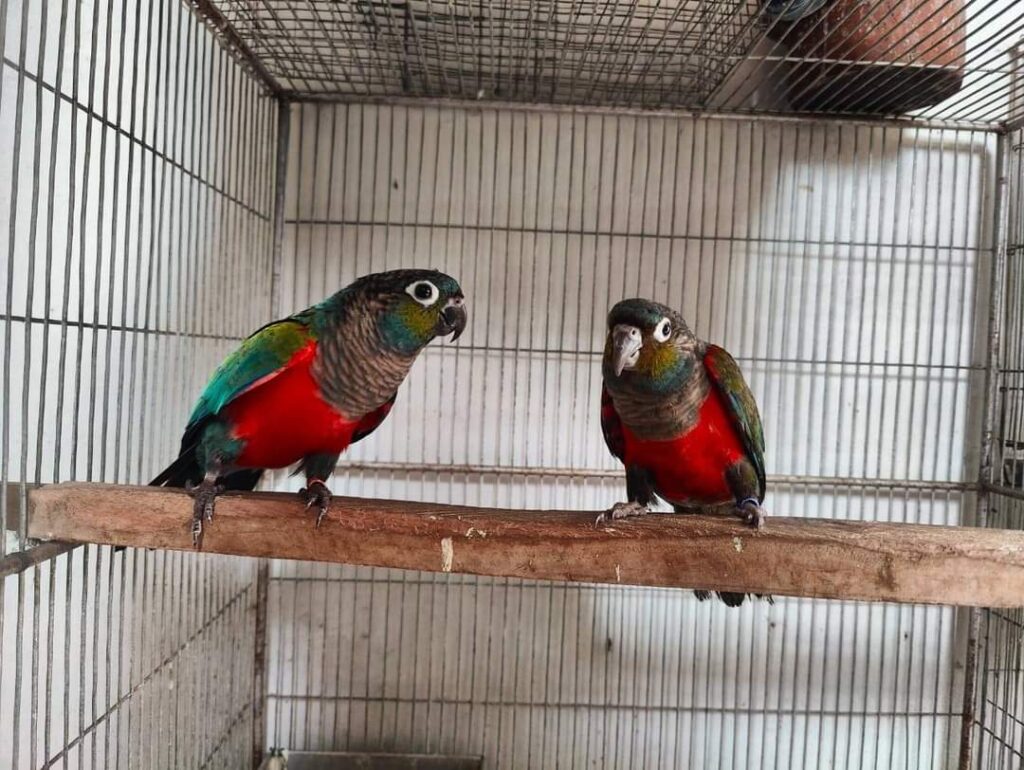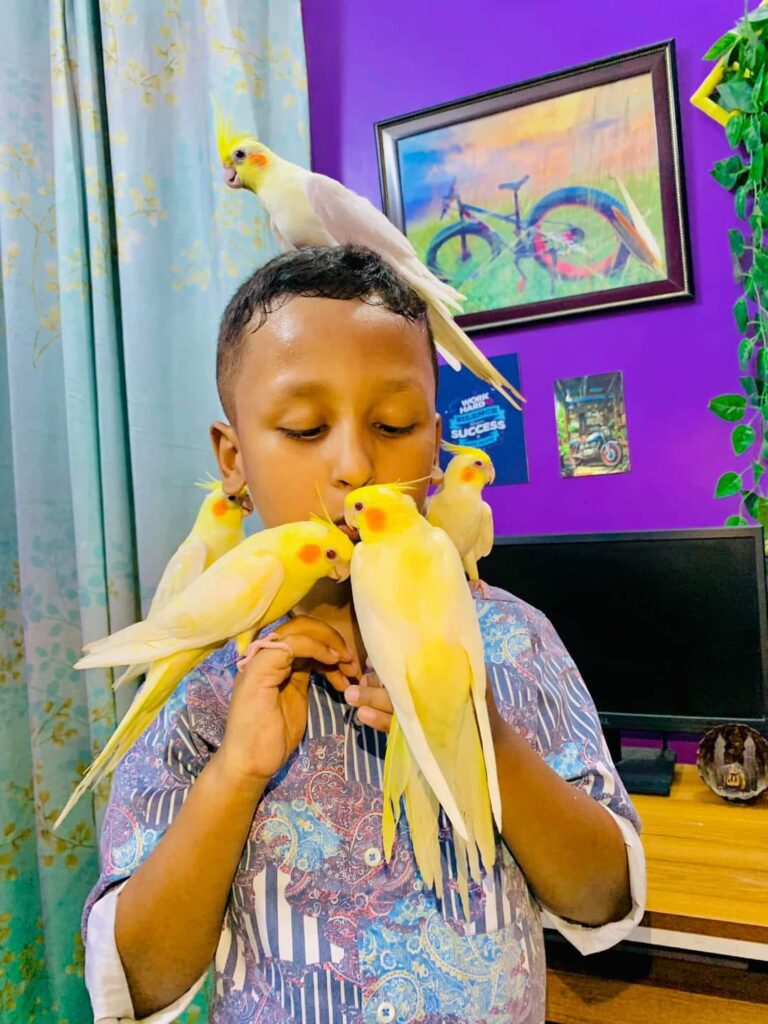
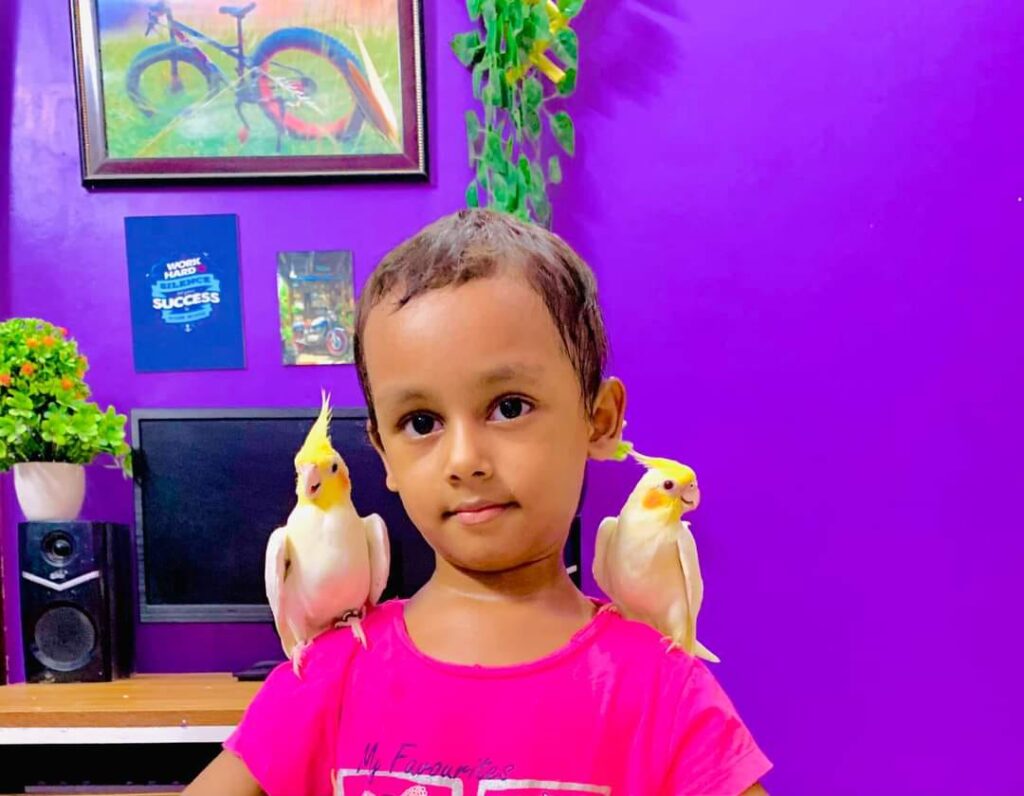
Building trust with gentle hands
Trust takes flight: A baby boy connects with his cockatiel companions, capturing the first steps of a lifelong friendship and this is the key how to take care of a bird.
How to take care of a bird
Caring for a pet bird can be a delightful and rewarding experience. Birds are intelligent, social, and vibrant creatures that bring joy and companionship into our lives. However, to ensure their happiness and well-being, it’s crucial to provide them with the proper care. This article will guide you through essential pet bird care tips, including their food style, socialization, choosing the right bird, cage setup, breeding cage size, health, safety tips, and more.
1. Choosing the Right Bird
Selecting the right bird is the first step in ensuring a harmonious relationship and this is the way how to care of a bird. Consider the following factors when choosing a pet bird:
- Size and Space Requirements: Smaller birds like budgies and canaries require less space, while larger birds like parrots need spacious cages.
- Noise Level: Some birds are quiet, while others can be quite noisy. Choose a bird that fits your lifestyle and tolerance for noise.
- Lifespan: Birds have varying lifespans, from a few years to several decades. Make sure you are ready for a long-term commitment, especially with species like parrots that can live for over 50 years.
- Temperament: Some birds are more social and interactive, while others may prefer solitude. Research the temperament of the bird species to ensure it matches your expectations.It can be consideres as another way how you can take care of a bird.
2. Cage Setup
The question how to take care of a bird is a little one but the answer requires lot. We should provide an intense care for our feathered friends.The cage is your bird’s primary habitat, so it’s crucial to set it up correctly. A well-organized cage contributes to your bird’s overall health and happiness.
- Cage Size:
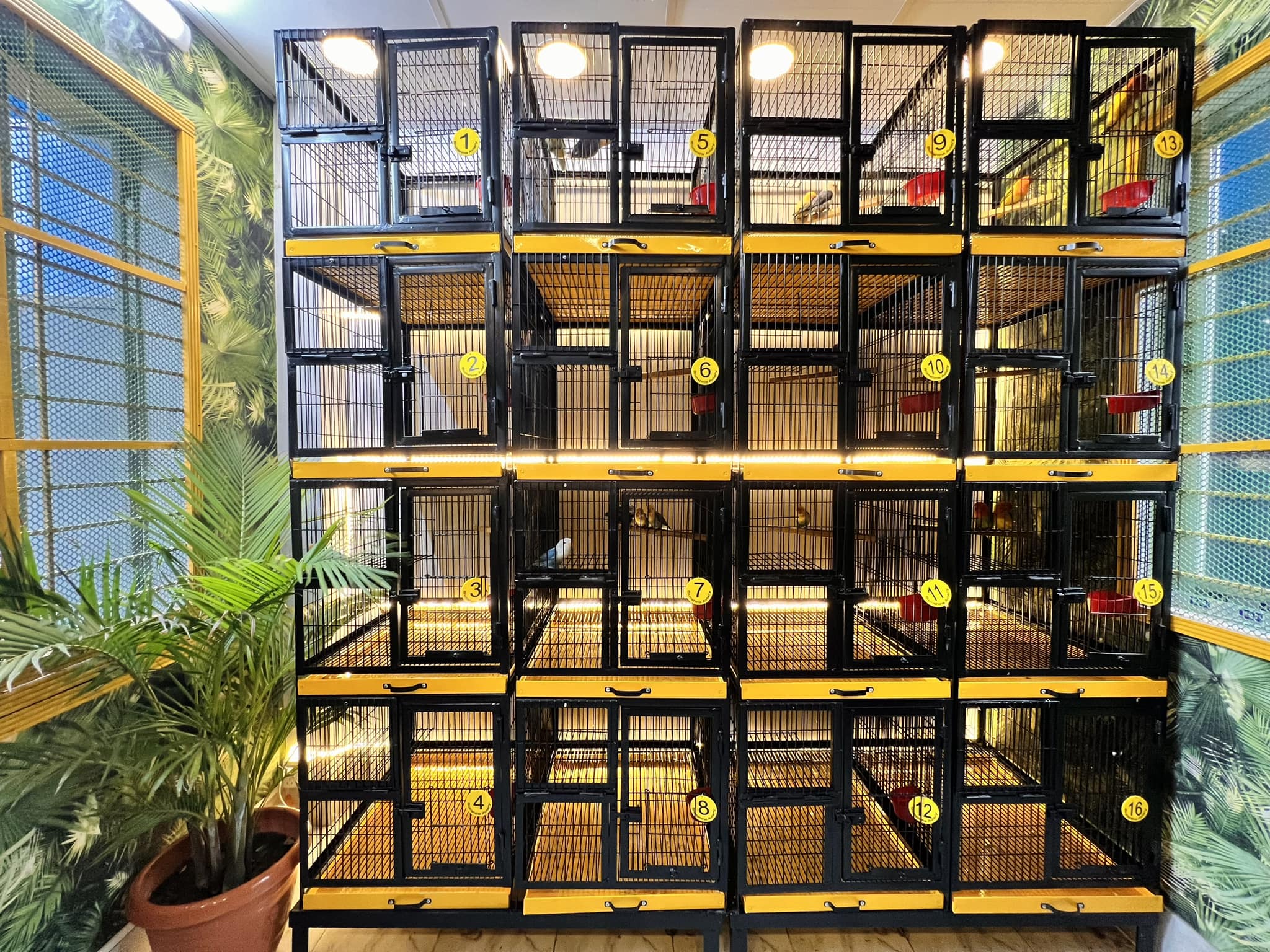 Choose a cage that provides ample space for your bird to move, stretch its wings, and play.Calculate the cage size by your bird wingspread, the cage should be at least twice or thrice as wide as your bird’s wings. For breeding birds, ensure a larger cage to accommodate the extra needs.
Choose a cage that provides ample space for your bird to move, stretch its wings, and play.Calculate the cage size by your bird wingspread, the cage should be at least twice or thrice as wide as your bird’s wings. For breeding birds, ensure a larger cage to accommodate the extra needs. - Cage Bars: Ensure the bars are appropriately spaced to prevent the bird from getting its head stuck. Vertical bars are better for birds that like to climb, such as parrots.
- Perches: Provide perches of varying diameters and materials to keep your bird’s feet healthy. Natural wood perches are ideal as they mimic the bird’s natural environment.
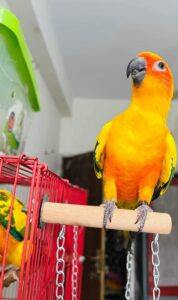
- Toys and Enrichment: Birds are intelligent creatures that need mental stimulation. Add toys, swings, ladders, and mirrors to the cage to keep your bird entertained.
3. Food Style
Food style is another important factor that helps you out to find how to take care of a bird.A balanced diet is crucial for a bird’s health. Different bird species have different dietary needs, but here are some general tips:
- Pellets: Pellets are a staple in most pet birds’ diets as they provide balanced nutrition. Ensure the pellets are species-specific.
- Seeds: While seeds are enjoyed by many birds, they should not make up the entire diet as they can lead to nutritional deficiencies. Mix seeds with pellets, fruits, and vegetables.
- Fruits and Vegetables: Fresh fruits and vegetables like apples, carrots, spinach, and berries should be offered regularly. Ensure that they have been washed properly.
- Avoid Toxic Foods: Avoid feeding birds avocado, chocolate, caffeine, alcohol, and foods high in salt and sugar, as these can be toxic.
4. Socialization
Birds are social animals that thrive on interaction. Proper socialization can prevent behavioral issues such as feather plucking and excessive screaming.
- Daily Interaction: You should give some time to your bird every day. Talk to them, play games, or simply allow them to sit with you.
- Training: Positive reinforcement training can help strengthen your bond with your bird. Teach them basic commands, tricks, or even how to step up onto your hand.
- Socialization with Other Birds: If possible, introduce your bird to other birds of the same species.
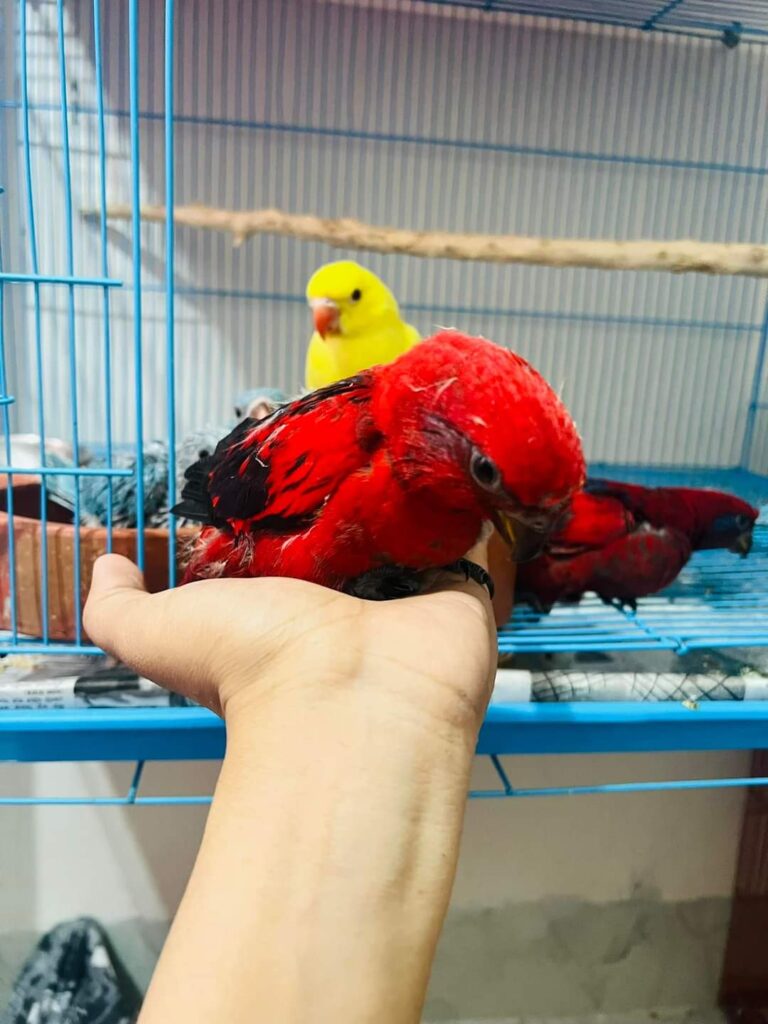 However, always supervise interactions to ensure compatibility and safety.
However, always supervise interactions to ensure compatibility and safety.
5. Breeding Cage Size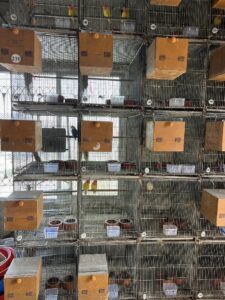
If you plan to breed birds, the cage size and setup are critical for the well-being of both the parents and the chicks.
- Breeding Cage: A breeding cage should be larger than a regular cage, providing enough space for nesting and the young birds.
 Include nesting boxes or platforms where the birds can lay their eggs.
Include nesting boxes or platforms where the birds can lay their eggs. - Privacy: Birds need a quiet, undisturbed space for breeding. Cover part of the cage with a cloth to provide privacy.
6. Health and Wellness
Keeping your bird healthy requires attention to diet, environment, and regular health checks.
- Veterinary Care: Regular vet check-ups are essential. Find a vet experienced with birds and schedule yearly exams to catch any potential health issues early.
- Cleanliness: Keep the cage clean by removing droppings, uneaten food, and changing water daily. If we can assure a clean environment,it can reduce the risk of infections.
- Signs of Illness: Watch for signs of illness, such as changes in appetite, droppings, or behavior, fluffed-up feathers, or lethargy. If you notice any unusual symptoms, consult a vet immediately.
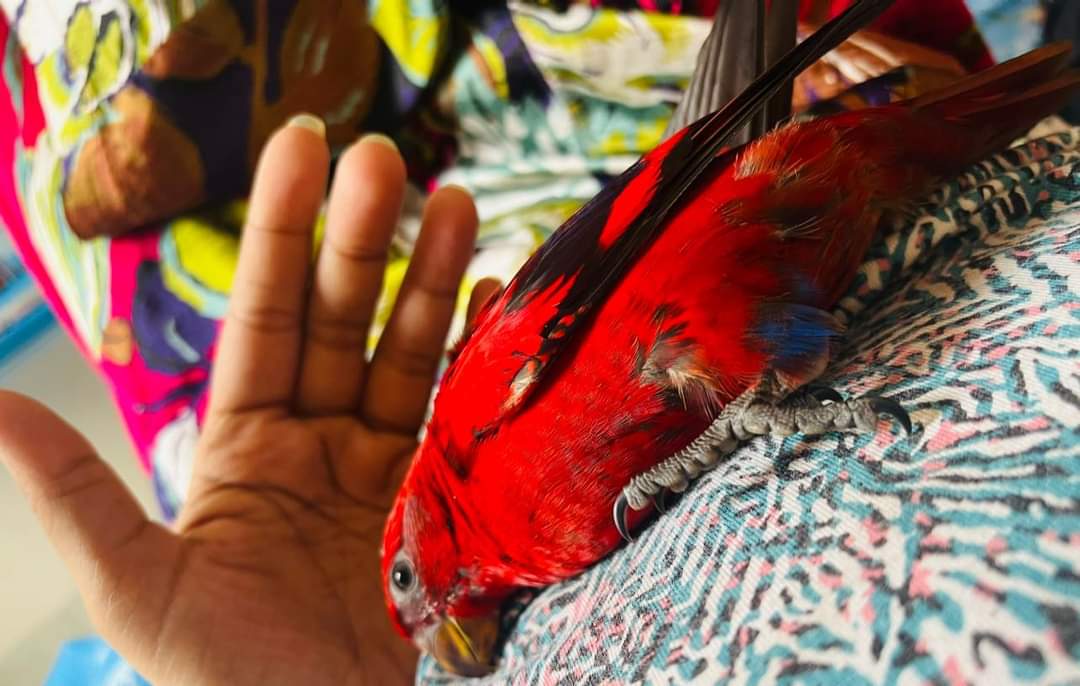
7. Safety Tips
Creating a safe environment for your bird is vital to prevent accidents and injuries.
- Avoid Toxins: Keep your bird away from toxic fumes, such as those from non-stick cookware, household cleaners, and cigarette smoke. Ensure the bird’s room is well-ventilated and free from hazards.
- Secure Windows and Doors: Birds can easily escape through open windows or doors. Use screens or close windows when your bird is out of its cage.
- Avoid Predators: Keep your bird safe from household pets such as cats and dogs. Never leave them unsupervised together.
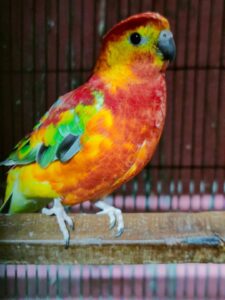
8. Mental and Physical Exercise
Birds need both mental and physical exercise to stay healthy and happy.
- Flight Time: Allow your bird to fly in a safe, enclosed space regularly. Flight is essential for their physical health and mental stimulation.
- Foraging: Introduce foraging toys or hide treats around the cage to encourage natural behaviors like searching for food.
9. Understanding Your Bird’s Behavior
Learning to understand your bird’s body language and behavior is key to providing the best care.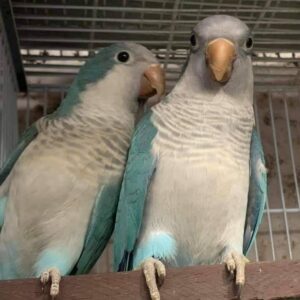
- Body Language: Birds communicate through their body language. Learn to recognize signs of happiness, stress, or illness.
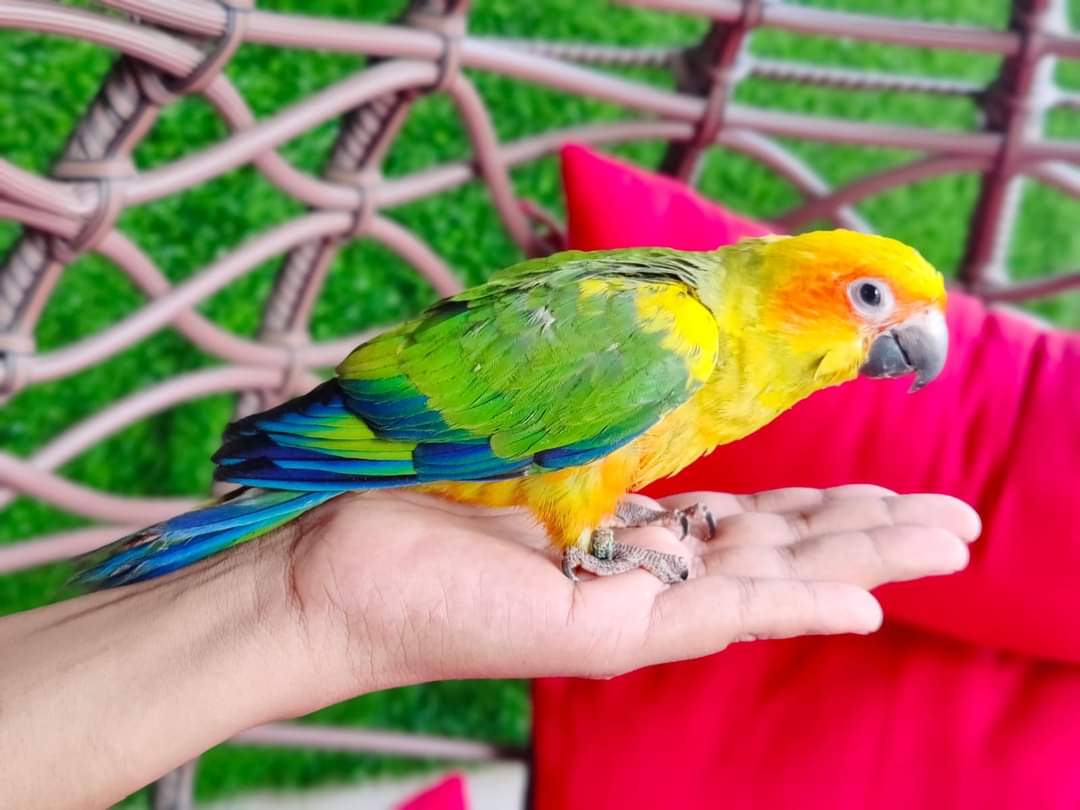
- Routine: Birds thrive on routine. Maintain a consistent schedule for feeding, cleaning, and socialization.
10. Environmental Enrichment
Enrichment is essential for keeping your bird mentally stimulated and engaged.
- Variety in Toys: Rotate toys regularly to keep your bird interested. Offer a mix of chewing, climbing, and interactive toys.
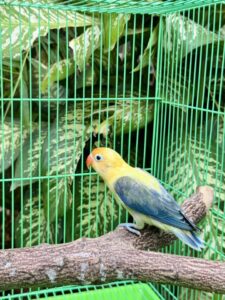
- Visual Stimulation: Position the cage near a window where your bird can watch outdoor activity, but avoid direct sunlight to prevent overheating.
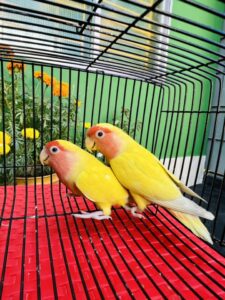
Conclusion
Proper care is essential for ensuring the well-being of your pet bird. By following these care tips on choosing the right bird, setting up an appropriate cage, providing a balanced diet, ensuring socialization, and paying attention to their health and safety, you can create a loving and stimulating environment for your feathered friend. Remember, a happy and healthy bird will not only be a delightful companion but also a joy to have as a part of your life.
